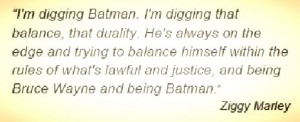Playing By the Rules
 A while back I was playing a board game with my great nieces (ages 2 & 5). To kids this age rules are somewhat irrelevant – it’s really about the dice (and finding them after the roll – or throw) and moving the pieces around to pretty spots. This can be pretty frustrating – even with the kids. I’m a ‘play by the rules’ kind of guy.
A while back I was playing a board game with my great nieces (ages 2 & 5). To kids this age rules are somewhat irrelevant – it’s really about the dice (and finding them after the roll – or throw) and moving the pieces around to pretty spots. This can be pretty frustrating – even with the kids. I’m a ‘play by the rules’ kind of guy.
How important is playing by the rules?
We always played by the rules at my house — it was the way I was brought up and the way I brought my kids up. Well except for that Free Parking thing in Monopoly – what were the game designers thinking when they left this out of the rules. We were so rigid about following the rules that the kids were nearly banned from game night at church one year – that and their extremely competitive nature (another story for another day).
How important is playing by the rules?
Consider the 40 Hour Work Week. This has been established as a business norm – the rule – in most places in North America. It is dictated by our bosses, our industries, and many times by expectations of our customers. Timothy Ferris challenged this in his best selling book, “The 4-Hour Workweek”. Best Buy challenged this with their short lived “Results Only Work Environment” (ROWE). These alternate ideas to the standard work week have not become mainstream. There are many companies (and people) that have embraced the idea that it’s more about the final product than the hours and have reinvented their work rules.
How important is playing by the rules?
Consider our roadways. In the states we drive on the ‘right’ side of the road. This is a pretty important area of conformance. If you want to drive on the left side of the road . . . . you should probably go somewhere that is the norm.
In our businesses there are certain ‘company’ rules. These can be pretty important areas of conformance. i.e. ‘If you want to drive on the left side of the road . . . . you often times have to go somewhere else.’
How important is playing by the rules?
- Challenge your thinking — are they rules or are they simply guidelines (like the ‘Pirate Code’ in “Pirates of the Caribbean”).
- Challenge your thinking (as a manager) — are you enforcing rules that were created for situations that don’t apply anymore.
Remember – every rule was made up by somebody, somewhere, sometime – to address a concern of the time.
This Week
Consider this – in many of the things that you do, there are no set rules, just an end product that you have to deliver. It is up to you and your team to find the best way to deliver. Find the proper balance, break a few ‘rules’, and out pace your competition.
. . . and have an Awesome Week
Tom Trabue
theNextStep
